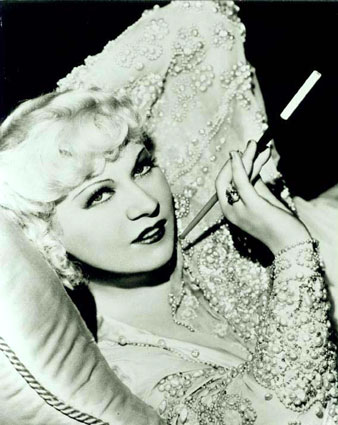
“Or are you just hugely happy to see me?“
Even when popularly-elected judges are “good”–and, to be fair, there are some great ones–state systems that support those regimes will never inspire much confidence. Each of those jurists is steeped a taint.
Think of it like this: Good Crops, Motherhood, the Flag, Andy Griffith, puppies, selflessness, courage (Mae West, above, had lots of it), beauty, truth, a thin Marie Osmond, Sweetness and Light, and replacing state judicial elections with merit-based selection in 39 American states. These are among the enduring and good things in life.
Lest anyone worry that writers at this site are developing tolerance for enduring but dumb ideas on hearing and deciding disputes, we will reach out and try here to be frank, forthright, and clear.
The popular election of state judges is beneath: (a) you, (b) your law firm, (c) your family’s dog, and (d) especially your clients, and especially if you act for businesses who trade nationally or globally. That institution, favored in a vast majority of states in some form, makes the states that still conduct them appear insular and potentially unfair to both American litigants and to non-Americans and their businesses abroad.
With each election cycle campaign donations are driving up the costs. This is, of course, wasteful and inefficient. See “The New Politics of Judicial Elections in the Great Lakes States, 2000″“2008” by Justice at Stake. More importantly, the very existence of state laws regulating campaign contributions to candidates running for judicial office send two unintended but lousy messages:
1. Judges, like mayors and congressmen, have “constituents”.
2. Justice, like real estate or widgets, is “for sale”.
